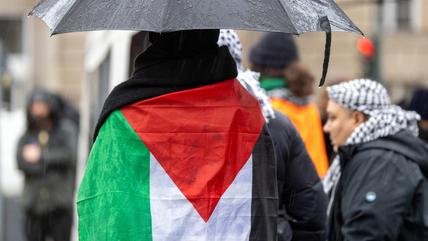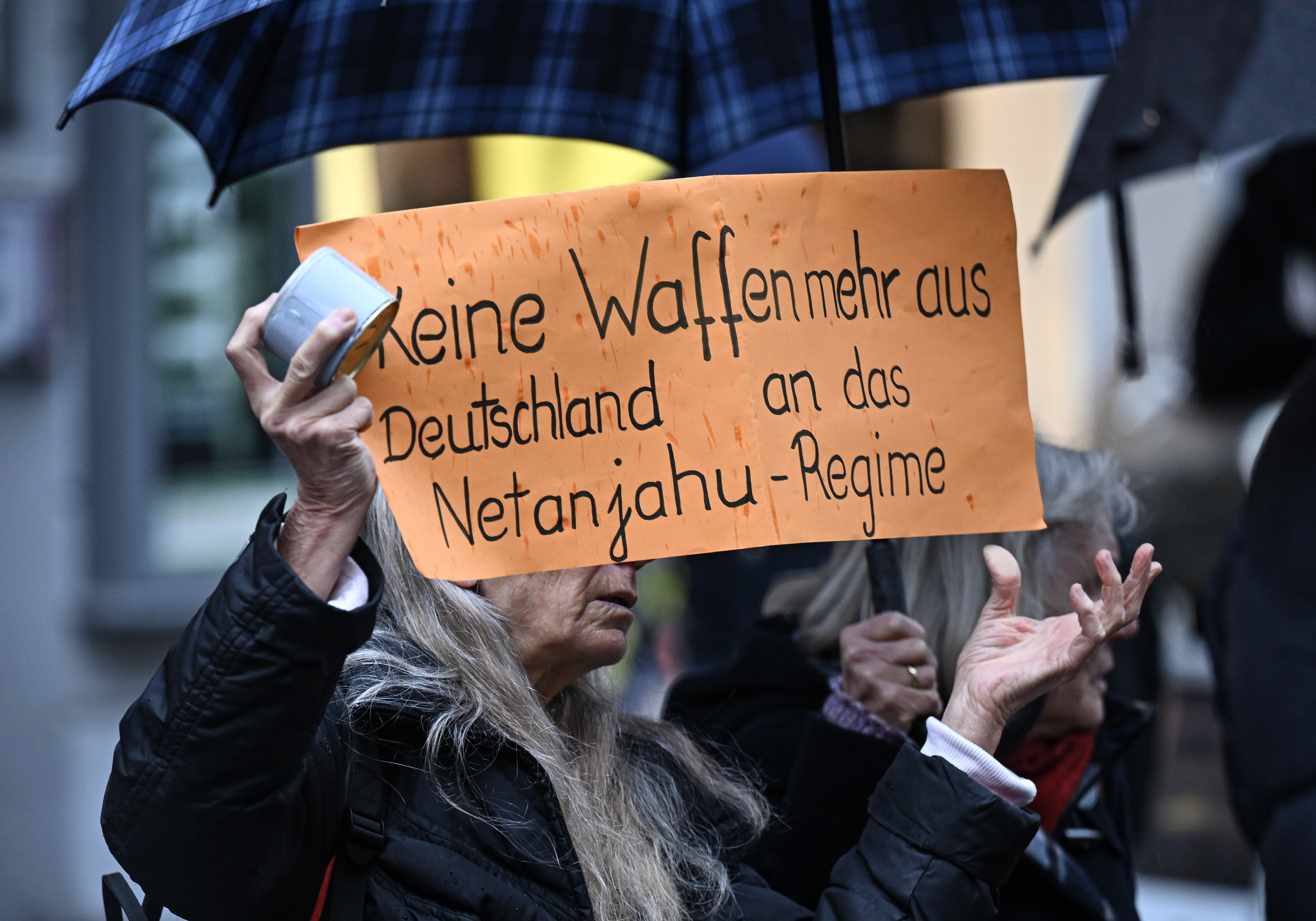A historic failure

The brutal attack by Hamas and other groups on 7 October 2023 was a watershed moment—for Germany too. From the outset, it was clear to all experts that it was a political turning point. For too long, the world had ignored the unresolved Israeli-Palestinian conflict and postponed steps towards a political solution. Germany is exceptional in that so many Germans have still not grasped the historical significance of 7 October and the ensuing war in Gaza. There is no other explanation for the failure of German politicians to react appropriately—or to react at all. That failure could be fatal.
The decision of Germany’s government and parliament to initially side with Israel and reaffirm its right to self-defence was the correct one. It was however clear very early on that the Israeli government and army were reacting with completely disproportionate force and showing little consideration for civilian lives. German politicians should have reacted to this much earlier, and much more decisively.
Olaf Scholz was the first European head of government to travel to Israel in October 2023. He did not object when Benjamin Netanyahu described Hamas as the “new Nazis”. A short time later, Netanyahu used the legend of Amalek to portray the war in Gaza through religious metaphors as a battle against absolute evil. Israeli Defence Minister Yoav Gallant ordered a complete blockade of the Gaza Strip on 9 October, after which no more electricity, food or fuel was to enter the enclave. In doing so, he announced a blatant war crime.

“The emphasis is on damage and not on accuracy,” is how Israeli army spokesperson Daniel Hagari described the military strategy from the outset. Israeli President Isaac Herzog declared that the entire population of Gaza was guilty, and thus that the distinction between civilians and combatants was redundant. He later wrote his signature and a personal message on bombs destined for Gaza.
All of the above is reflected in the indictments now being heard in The Hague. South Africa sees ample evidence of genocidal intent and brought the case against Israel before the International Court of Justice (ICJ) at the end of 2023. Karim Khan, chief prosecutor of the International Criminal Court (ICC), also applied for arrest warrants against Netanyahu and Gallant in May 2024, holding them responsible for war crimes and crimes against humanity in Gaza.
Media outlets and human rights organisations accuse Israel of a plethora of war crimes in Gaza. Indiscriminate bombing campaigns with no regard for civilians. Attacks on hospitals, sewage treatment plants, universities, schools and other civilian infrastructure. These crimes have made the Gaza Strip uninhabitable. “Torture camps” have been established for prisoners, reports the human rights organisation B’Tselem, and a policy of deliberate starvation is being used against the population of Gaza.

"This is no longer my country"
The Hamas attack on 7 October 2023 was a transformative experience for much of Germany's Palestinian diaspora. Many lost relatives in Gaza, along with their trust in the German media. Four Palestinians in Berlin share their experiences.
Netanyahu drags Israel’s allies into the abyss
So far, German politicians have failed to react to any of this. Even US President Joe Biden has been more critical of Israel’s actions than the German chancellor. Biden described Israel’s bombardment as “indiscriminate” and warned early on in the war that Israel should avoid making the same mistakes as the US did after 11 September 2001.
Unfortunately, Biden’s warning went unheeded and he failed to follow his words with any action to restrain Israel. Emboldened, Netanyahu has decided to strike Lebanon with full force as well. Like the US after 9/11, Israeli warfare is dragging its allies deeper and deeper into a moral abyss.
This will have consequences. The race for the US presidential election in November still hangs in the balance. The war has deeply divided the Democratic Party. Biden has been vilified as “genocide Joe” for his failure to react to the mass killings in Gaza, and it remains unclear if Kamala Harris will be able to escape his shadow during her election campaign.
The parties that form Germany’s traffic-light coalition—in particular the social democratic SPD and the Greens—have also suffered considerable reputational damage in the US’s wake. They could now face the same fate as the British Labour Party under Tony Blair, whose reputation was destroyed after he unreservedly sided with the US when it invaded Iraq in 2003. Blair’s party did not recover for a long time; it was over a decade until his party could form a government again. The trust of the electorate had been destroyed. The traffic-light parties have also lost trust, plummeting in the polls and the recent state elections.

With its stance on Israel, Germany has isolated itself abroad. It is one of the last remaining countries to stand behind Netanyahu at the UN General Assembly. The German government immediately sprang to Israel’s side and rubbished South Africa’s accusation of genocide at the ICJ. In the meantime, Ireland and Spain have joined countries like Chile and Mexico in support of the case at the UN’s highest court—a testament to how divided Europe is on the issue.
In April, Germany was in the dock when Nicaragua accused it of aiding and abetting genocide. Although the court rejected the demand to stop German arms exports to Israel in its preliminary decision, it’s clear that a significant portion of the international community holds Germany responsible for the mass death in Gaza as Israel’s close ally and second-largest supplier of arms.
It is not only in Arab or Muslim states that Germany’s reputation has declined. The international court cases have demonstrated this decline in many countries across South America and Africa, i.e. across much of the Global South. Political scientists Marcus Schneider and Jannis Grimm warned in an essay for IPG Journal in June that it is “above all the progressive, critical civil societies that are now turning away from a German republic that is perceived as untrustworthy”. Like ostriches, German politicians are burying their heads in the sand and hoping this will all blow over. They are refusing to face reality.

Germany’s dilemma at the ICC
The International Criminal Court could soon issue arrest warrants for Israel's Prime Minister Netanyahu, Defence Minister Gallant and two Hamas leaders. As several states attempt to influence the verdict, Germany is torn between solidarity with Israel and commitment to international law.
Authoritarian tendencies in Germany
As German prestige erodes, its political class is fighting even more doggedly to enforce its declared pro-Israel Staatsräson (reason of state), the meaning of which appears more questionable with each passing day. In doing so, it displays authoritarian intolerance and increasingly illiberal tendencies. Several university protests and an entire “Palestine Congress” have been violently quashed by the police. Critical artists, scientists and other intellectuals have been blacklisted or brought into line through “antisemitism clauses” and other questionable means. Fitting this pattern of rising authoritarianism, the Ministry of Education has even examined proposals to bar unruly academics who criticised this German policy from receiving funding that had already been awarded.
With a host of illiberal measures, German policy goes much further than that of the US in this regard, as argued by German/British journalist and Germany-expert Hans Kundnani in an essay for Dissent Magazine in March. To justify these policies, Germany points to its historical responsibility for the Holocaust. But this particular interpretation of history cannot be reconciled with universalist values. The philosopher Susan Neiman, who once wrote a book praising Germany’s politics of remembrance, now speaks of a prescribed “philosemitism” and, like others, of pro-Israeli “McCarthyism”. Political scientist Daniel Marwecki has labelled it “ersatz-nationalism”, and warns that Germany must choose between Staatsräson and international law.
In the face of attacks on synagogues and antisemitic slogans, it was natural and necessary for German politicians to stand up in defence of Jews in Germany and unanimously condemn these crimes. But there has been hardly a single word of sympathy for Germany’s Palestinian population, many of whom have lost relatives themselves, are living in fear for those still in Gaza, and are universally held under suspicion. The consequences of the war in Gaza will be felt for a long time to come. UN experts estimate that it could take 80 years to rebuild the enclave. That trauma will be felt for generations to come.

Germany must decide what its so-called Staatsräson actually means. Does it mean solidarity with those people in Israel and Palestine who want security, peace, and an end to the ongoing conflict? If so, Germany must finally risk a change of course and impose an arms embargo. It should exert pressure on Netanyahu, instead of giving him free rein to expand the war into Lebanon and beyond.
Do we want to continue to support an, in part, right-wing extremist government that makes no secret of its plans for mass expulsion and its fantasies of extermination? In doing so we keep a head of government in office who has no interest in an end to the war, which would mean facing unpleasant questions and possibly even time in prison.
Scholz and his foreign minister Annalena Baerbock have slowly changed their tone towards Netanyahu in recent months. Vice Chancellor Robert Habeck even conceded that Israel’s actions in Gaza are incompatible with international law. But that is not enough. Unless Germany uses its leverage, these words will remain empty. The ruling coalition will soon be history, but we will have to live with the consequences of its foreign policy failures at this historic moment for a long time to come.
© Qantara.de 2024
